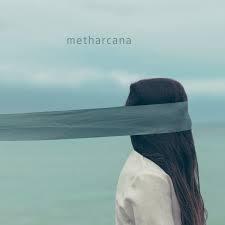Metharcana. Stephan Dunkelman (1956-2020) ; Ingrid Drese (1957-) ; Daniel Perez-Hajdu (1980-) ; Dimitri Coppe (1969-) ; Charo Calvo(1960-) ; Stephanie Laforce (1980-) ; Todor Todoroff (1963-) ; Elizabeth Anderson (1960-) ;Jean-Louis Poliart (1954-) ; Raphael Vens(1978). 113’50" – 2024 – Booklet : French and English Soond. SND23010.
The Forum de la Création Musicale is extending its anniversary tour (20 years) with a double CD: ten pieces to give a taste of contemporary Belgian electroacoustic music, brought together under one title, a tribute to the opening work by Stephan Dunkelman, a pupil of Annette Vande Gorne (like many others here) who, in addition to concert broadcasts, has written extensively for the visual arts (plastic, film, etc.) or for live performance (dance -Metharcana draws on elements written for choreography- and fashion -if fashion is a performance). ) or for live performance (dance -Metharcana draws on elements written for choreography- and fashion -if fashion is a performance): His music intrigues, whispers, resounds (and flows) in space.
With Io ou là-bas, là-haut, commissioned by the Ars Musica festival in 2011, Ingrid Drese becomes Tijl Uilenspiegel, the joker and beggar of Flanders, to take us, mad as we are to follow her, to the sometimes vertiginous frontier (the mechanical sounds, both muffled and nervous, of the metro and the dome of the observatory in Paris) between two cosmogonies: the piece is the matrix/result of two others, one born of wonder at the dome of the observatory opening out onto the stars, the other from which emerge sounds shaped like the light sandy folds of the beach at Coxyde when the sea recedes.
Daniel Perez-Hajdu's idea for Abstraire is, in a way, to strip away a dense world of sound, to peel it back and keep only the skeleton from which to build (abstract): a primitive, ritualised rotation that the sound-maker shuffles and evolves. Fragment de vie (Fragment of Life) creaks and breathes, echoing the silicosis-stricken miners, impressive in its presence, limping with electricity, while The Grass (by Charo Calvo, ex-dancer turned sound designer), which follows it, superimposes chewed-up voices, sometimes reverberated or melodic cries: it's all about grass, in an atmosphere that cultivates the chilling.
I saw Stéphanie Laforce's If Taxus at the Belgian Music Days in Eupen in 2022, which loses none of its raw, sensitive poetry on record, built around the Celtic funerary tree to which it refers, a toxic link between the dead and the living. We know that Todor Todoroff, who trained in telecommunications, is very involved in research (voice analysis and synthesis, computer music, interactive systems, sound perception): Voices Part III - Resistance is dense, populated by multiple living forms, teeming with digital transformations and spiralling around his fascination with the innate and inherent preference we have for certain voices over others.
Elizabeth Anderson, an American living in Brussels, begins L'Heure bleue - Renaitre du silence (Blue Hour - Rising from Silence) with him, a (quasi-)silence that gradually emerges from its shell, like an awakening, like a birth, like an ascent of the spirit.
The lamentation refers to the work of art representing the dead Christ, mourned by Mary, Magdalene and Saint John, after the deposition - by extension, the Déploration sur la disparition d'un musicien speaks of the death of the musician: Jean-Louis Poliart starts from the lamentation that runs parallel to the degeneration of life, of the body, which he reinforces with crescendos that push the piece towards its climax. Raphael Vens brings the double disc to a close in a completely different mood: Intuitio, wriggling like the reflections of a trout in spring, cultivates an allegory of life, between the spontaneity of intuitive sound movement and reasoned, thought-out constraint - in this case the programmed rules of computer-assisted composition.
In a few crucial stages (Varèse's Poème électronique at the Pavillon Philips, Béjart's Symphonie pour un homme seul, Schöffer's Tour cybernétique), Todor Todoroff reminds us, in his booklet notes, of the liveliness of the artistic experience in a small but open country, It is a country that has nurtured the first wave of Belgian research in electroacoustic music and is now witnessing the emergence of a generation - many of whom are present on Metharcana - who intelligently blend musique concrète with instrumental or mixed music.
Sound: 8 - Booklet: 8 - Repertoire: 7 - Performance: 7
Bernard Vincken

